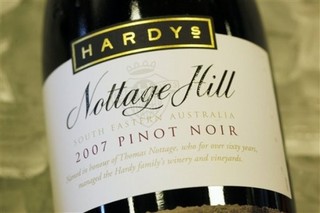In the book Fire From Heaven: Life in an English Town in the Seventeenth Century, the late Yale historian David Underdown tells a story of how the Puritans of Dorchester adopted an unusual tactic to assist the town's poor: they opened a brewery. As in many English towns of the 17th century, problems of overcrowding led many residents and their children to the edge of destitution. But the Puritans' vision of salvation was holistic: the godly would demonstrate their souls' transformation by God in good works. They would not allow their fellow families to go hungry while they had the means to do something about it. So they opened the brewhouse, using proceeds from beer sales to bring poor children to school, instruct them in the faith and in useful vocations, and give them clothes and food. The brewhouse was a wonderful success, and significantly helped to alleviate the problem of poverty in Dorchester.
Fast forward to 2011. Much has changed in some conservative Christians' view of alcohol. Far from being a tool of charity, or even a sign of God's favor, as it was to David in Psalm 104 (God brought forth "wine that maketh glad the heart of man"), many see alcohol as evil, in and of itself. Not a drop is to pass the lips of a believer.
As old-fashioned as this argument may sound to outsiders, Southern Baptists are at one another's throats about it yet again. (Readers should note that I am a Baptist.) Shortly after Christmas, when the Baptist State Convention of North Carolina proposed to "study" whether alcohol consumption could be permissible for church leaders, anti-alcohol Baptists erupted with indignation, insisting that teetotalism is an essential Baptist distinctive. Indeed, the Southern Baptist Convention in 2006 made "total opposition to the manufacturing, advertising, distributing, and consuming of alcoholic beverages" the official policy of the denomination.
Read Full Article »



